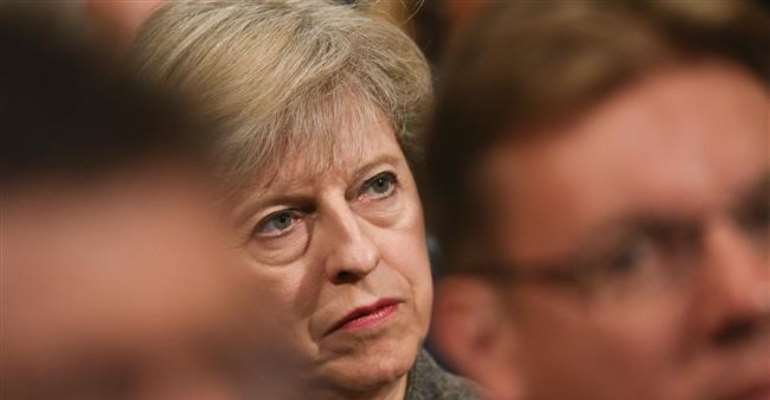UK govt forecasts slow economic growth after Brexit

Philip Hammond has said next year’s growth will be below expectations, admitting the Government can no longer deliver a surplus in 2019/20.
The Chancellor said that GDP growth in 2017, the year the UK is expected to begin the process of leaving the European Union, is now expected to be just 1.4%.
The growth figure from the Office for Budget Responsibility is down from the 2.2% it had previously forecast.
Mr Hammond told MPs: “That’s slower, of course, than we would wish, but still equivalent to the IMF’s forecast for Germany, and higher than the forecast for growth in many of our European neighbours, including France and Italy.”
Mr Hammond blamed the slowdown on lower investment and weaker consumer demand “driven by greater uncertainty and higher inflation resulting from sterling depreciation”.
Mr Hammond said: “In view of the uncertainty facing the economy, and in the face of slower growth forecasts, we no longer seek to deliver a surplus in 2019-20.
“But the Prime Minister and I remain firmly committed to seeing the public finances return to balance as soon as practicable, while leaving enough flexibility to support the economy in the near term.”
Mr Hammond said that the OBR expects growth to be around 2.4% lower over the period to 2021, due to the UK’s decision to leave the EU.
The Chancellor said the referendum result will “change the course of Britain’s history” and “makes more urgent than ever the need to tackle our economy’s long-term weaknesses” including the productivity gap.
Britain will need to borrow £122bn more over the next five years than was expected before June’s EU referendum.
The new draft Charter for Budget Responsibility has three fiscal rules – return public finances to balance “as early as possible in the next Parliament” with cyclically adjusted borrowing below 2% by end of this Parliament; public sector net debt falling as share of GDP by end of Parliament; and welfare spending within a cap. – Sky News.
The Chancellor said that GDP growth in 2017, the year the UK is expected to begin the process of leaving the European Union, is now expected to be just 1.4%.
The growth figure from the Office for Budget Responsibility is down from the 2.2% it had previously forecast.
Mr Hammond told MPs: "That's slower, of course, than we would wish, but still equivalent to the IMF's forecast for Germany, and higher than the forecast for growth in many of our European neighbours, including France and Italy."
Mr Hammond blamed the slowdown on lower investment and weaker consumer demand "driven by greater uncertainty and higher inflation resulting from sterling depreciation".
Mr Hammond said: "In view of the uncertainty facing the economy, and in the face of slower growth forecasts, we no longer seek to deliver a surplus in 2019-20.
"But the Prime Minister and I remain firmly committed to seeing the public finances return to balance as soon as practicable, while leaving enough flexibility to support the economy in the near term."
Mr Hammond said that the OBR expects growth to be around 2.4% lower over the period to 2021, due to the UK's decision to leave the EU.
The Chancellor said the referendum result will "change the course of Britain's history" and "makes more urgent than ever the need to tackle our economy's long-term weaknesses" including the productivity gap.
Britain will need to borrow £122bn more over the next five years than was expected before June's EU referendum.
The new draft Charter for Budget Responsibility has three fiscal rules - return public finances to balance "as early as possible in the next Parliament" with cyclically adjusted borrowing below 2% by end of this Parliament; public sector net debt falling as share of GDP by end of Parliament; and welfare spending within a cap. - Sky News.
